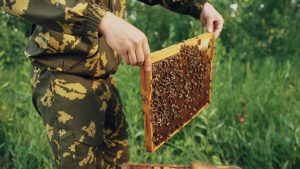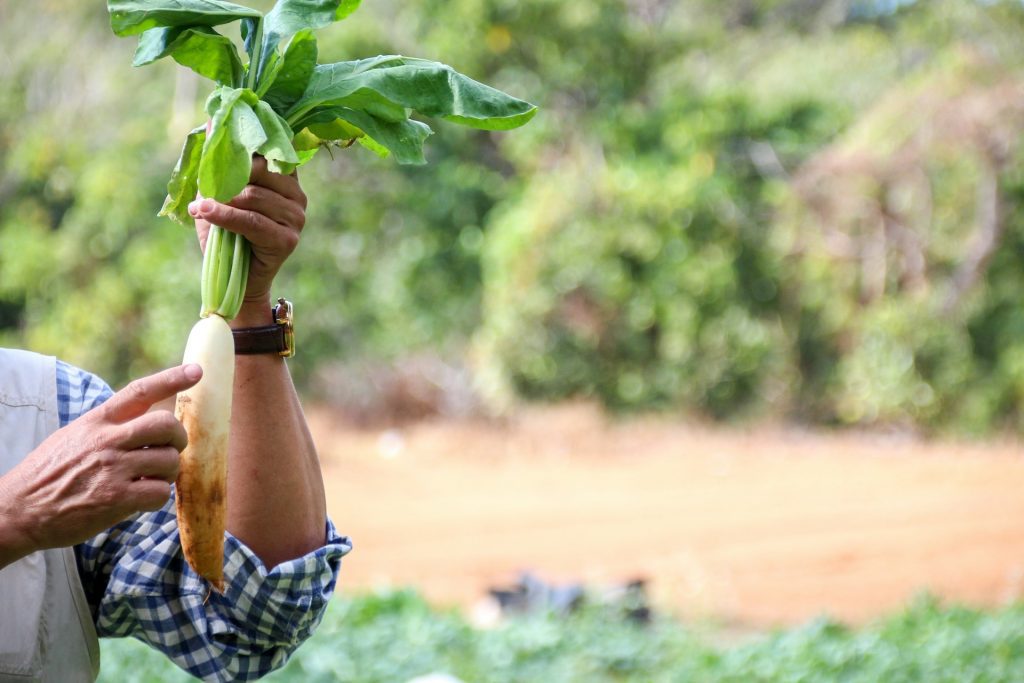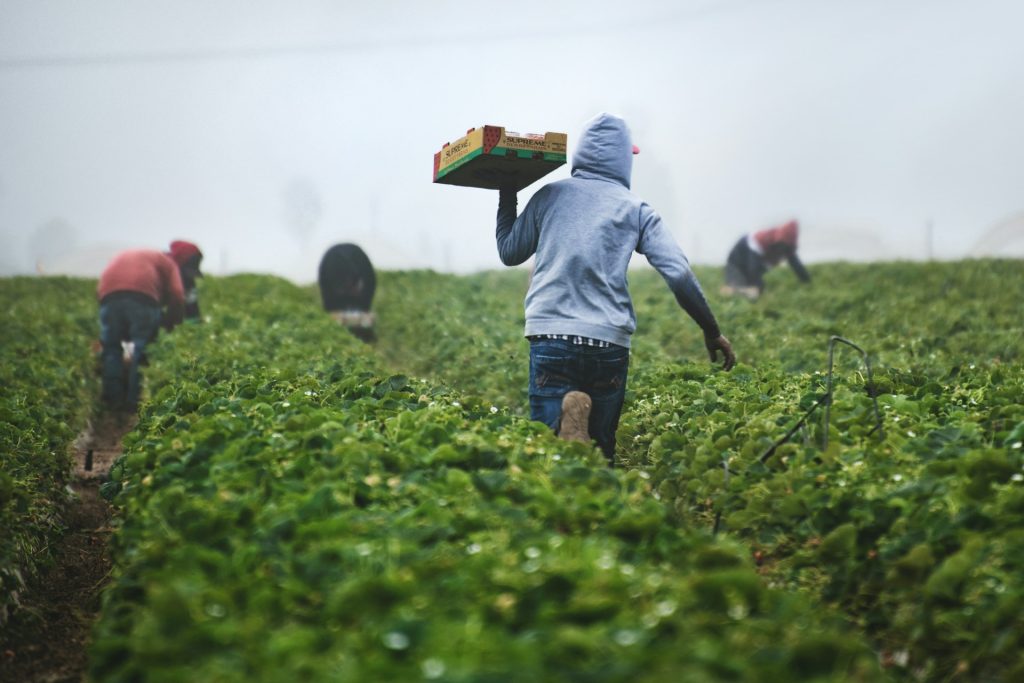 If you are looking for a short‑term job in Britain, here’s the bottom line: the only visa designed specifically for seasonal work is the Seasonal Worker visa, which covers horticulture (up to 6 months) and poultry (2 October–31 December). Most other seasonal roles—like summer hospitality, Christmas retail, events, or festivals—require that you already have the right to work (for example, through the Youth Mobility Scheme, student permission, or another status). This guide explains exactly what you can (and cannot) do in 2025, what you’ll be paid, how recruitment really works, and how to avoid scams.
If you are looking for a short‑term job in Britain, here’s the bottom line: the only visa designed specifically for seasonal work is the Seasonal Worker visa, which covers horticulture (up to 6 months) and poultry (2 October–31 December). Most other seasonal roles—like summer hospitality, Christmas retail, events, or festivals—require that you already have the right to work (for example, through the Youth Mobility Scheme, student permission, or another status). This guide explains exactly what you can (and cannot) do in 2025, what you’ll be paid, how recruitment really works, and how to avoid scams.
Read Also: Unskilled Jobs Visa Sponsorship UK 2025
The Seasonal Worker Visa, Explained
 What it is. A Temporary Work route for horticulture (fruit, veg, flowers, glasshouse work) and poultry roles. It’s not a general “farm or holiday job visa” and it does not cover hospitality, retail, warehouse Christmas temps, or festivals.
What it is. A Temporary Work route for horticulture (fruit, veg, flowers, glasshouse work) and poultry roles. It’s not a general “farm or holiday job visa” and it does not cover hospitality, retail, warehouse Christmas temps, or festivals.
How long can you stay? Up to 6 months in any 12 months for horticulture. For poultry, your work period must fall between 2 October and 31 December in the same year. You can usually apply up to 3 months before your job start date.
Who can sponsor you. Only Home Office‑approved scheme operators (not individual farms) can sponsor seasonal workers. Growers recruit through these operators, who assign your Certificate of Sponsorship (CoS). You cannot self‑sponsor.
Eligibility snapshot.
- Age 18+ at the date of application.
- A valid CoS from a scheme operator.
- Maintenance funds: usually £1,270 held for 28 days in the 31 days before you apply, unless your CoS states the sponsor is covering this.
- The job must pay at least the National Minimum/Living Wage and comply with UK working time rules.
Read Also: Caregiver Jobs in UK with Visa Sponsorship
What you can and cannot do.
- You can: work in the role on your CoS; study (for some courses you may need ATAS); enter up to 14 days before your start date.
- You cannot: take a permanent job; do a second job; access public funds; bring dependants; or work outside horticulture/poultry.
Poultry deadline. Poultry applicants must submit their visa application by 15 November each year. Certificates generally shouldn’t be issued beyond that date for poultry roles.
Costs and decision times (typical). You’ll pay the visa fee and show maintenance funds (or CoS certification). Once you’ve applied and verified your identity, decisions typically come in about 3 weeks if you apply from outside the UK. Actual timelines vary by country and appointment availability.
Reality check. Work is physical, often outdoors or in glasshouses, with repetitive tasks and variable weather. Shifts may start early, run long in peak harvests, and require weekend work. Rural locations are common; transport and accommodation may be basic.
Read Also: Warehouse Jobs in the UK- Everything You Need To Know
Approved Scheme Operators & How Hiring Works in Seasonal Jobs
 What operators do. Scheme operators hold the licence to sponsor, run recruitment, issue Certificates of Sponsorship, and are responsible for your welfare standards. Growers apply to them for labour; you apply to the operator rather than directly to a farm.
What operators do. Scheme operators hold the licence to sponsor, run recruitment, issue Certificates of Sponsorship, and are responsible for your welfare standards. Growers apply to them for labour; you apply to the operator rather than directly to a farm.
Hiring workflow.
- Apply to an operator (online form, CV, basic screening).
- Interview/selection (may include experience checks and availability for a season).
- Job match to a farm and CoS assigned.
- Visa application (upload documents, biometrics/identity).
- Travel & induction (operator or farm provides arrival instructions; sometimes airport pickup).
Verifying legitimacy. Before you pay for anything, confirm that your operator appears on the UK’s Register of Licensed Sponsors (Workers) and that your CoS number is genuine. Never accept a “sponsorship letter” not backed by a CoS.
About lists you may see online. You’ll find blog posts naming operators (for example, those active in recent seasons). Treat any third‑party list as illustrative only. Always verify the current operator on official registers and guidance pages, which are updated periodically.
Read Also: Jobs Available in the UK for Foreigners (2025/2026): Visas, Sectors, Salaries, and How to Apply
Pay, Hours, Accommodation & Your Rights in Seasonal Jobs
National Minimum/Living Wage from April 2025 (hourly).
- £12.21 (age 21 and over)
- £10.00 (age 18–20)
- £7.55 (age under 18)
- £7.55 (apprentice rate)
These are minimums—some farms pay piece rates or higher base rates at peak. If paid by piece, your average earnings must not fall below minimum wage for all hours worked.
Accommodation & deductions. Accommodation may be offered on‑site or nearby. A capped accommodation offset can be deducted from wages if accommodation is provided (daily cap applies); you should be told the amount upfront in your contract or welcome pack. Transport to fields or packhouses may be charged at cost—ask for written details.
Hours, breaks, holidays. UK working time law caps the average working week at 48 hours unless you opt out in writing. You’re entitled to rest breaks (at least 20 minutes if working over 6 hours), 11 hours’ rest between days, and one day off per week (or two every 14 days). All workers accrue paid holiday—for irregular hours, this is commonly calculated at 12.07% of hours worked. Bank holidays can be included within the 5.6‑week statutory minimum.
Zero recruitment fees. UK law prohibits employment agencies from charging you work‑finding fees. Operators or agents cannot make your job conditional on buying extra services. Be wary of anyone asking for cash for “arranging a farm job” or “guaranteeing a visa.”
Where to get help.
- GLAA (Gangmasters & Labour Abuse Authority) investigates labour exploitation in agriculture and food processing.
- Acas provides free advice on pay, contracts, hours, holiday, and resolving workplace problems.
Raise concerns early—keep payslips, contracts, and messages.
Read Also: Physician Associate in the UK (2025/2026): Registration, Jobs, Pay, and Visa Options
Alternatives to the Seasonal Worker Visa (Who Actually Qualifies)
 Many people asking about “seasonal jobs in the UK” want summer hospitality, events, or retail. Those jobs are not covered by the Seasonal Worker visa. You’d need existing work rights through one of the following:
Many people asking about “seasonal jobs in the UK” want summer hospitality, events, or retail. Those jobs are not covered by the Seasonal Worker visa. You’d need existing work rights through one of the following:
A) Youth Mobility Scheme (YMS)
- What it is: A 2‑year visa that lets eligible 18–30 or 18–35‑year‑olds (depending on nationality) live and work in any job except professional sports, with no sponsorship required.
- Who qualifies: Nationals of participating countries and territories (eligibility list varies; some nationalities—such as Hong Kong SAR and Taiwan—use a ballot system each year; India runs a related India Young Professionals Scheme with its own ballots and rules).
- Best seasonal uses: Hospitality, festivals, holiday parks, summer resorts, Christmas retail and logistics—all the seasonal roles the Seasonal Worker visa doesn’t cover.
- Costs & savings: You’ll pay a visa fee and the immigration health surcharge; you must show £2,530 in savings.
Read Also: Do UK Scholarships Cover Full Tuition?
B) Student permission (already in the UK)
If you’re a student in the UK with a visa allowing work, you can usually work up to 20 hours per week in term time and full‑time in official vacations. Many students take seasonal shifts in hospitality, events, and retail.
C) Other temporary routes (niche)
Routes like Creative Worker, Charity Worker, or Government Authorised Exchange exist for specific, sponsored roles, not general seasonal jobs. Unless your role fits their scope—and your employer is licensed—they won’t apply.
D) Skilled Worker (not for entry‑level seasonal roles)
The Skilled Worker route requires an eligible skilled occupation at a set salary threshold and an employer with a Worker sponsor licence. It’s rarely a fit for entry‑level seasonal work.
Read Also: Dental Technician Jobs in the UK
Sectors & Peak Hiring Calendars in the Seasonal Jobs Industry
Horticulture (Seasonal Worker visa)
- Glasshouse salad/flowers: late winter to spring.
- Soft fruit (strawberries, raspberries, blueberries): spring to late summer; peak harvest often May–August depending on region and weather.
- Top fruit & field veg (apples, pears, onions, brassicas): summer through autumn.
- Bulbs & flowers: spring and autumn peaks.
Poultry (Seasonal Worker visa)
- Hiring and arrivals: October–December only, with an application deadline mid‑November.
Hospitality, tourism & events (requires work rights like YMS/student)
- Seaside resorts, campsites, theme parks, summer festivals: May–September.
- Ski areas (Scotland): winter season; weather‑dependent; many roles filled by YMS holders and students.
Retail & logistics (requires work rights)
- Christmas temps: recruitment starts September, peaks October–November for November–January work.
Read Also: Plumbing Jobs in the UK- Everything You Need to Know
How to Find Legitimate Seasonal Jobs (and Avoid Traps)
 For Seasonal Worker visa or seasonal jobs (horticulture/poultry).
For Seasonal Worker visa or seasonal jobs (horticulture/poultry).
- Apply directly to scheme operators. They will place you with growers. Avoid anyone promising a CoS for a fee.
- Check the sponsor register to confirm the operator is currently licensed for the Seasonal Worker route.
- Ask for written details on pay rates, accommodation costs/offsets, transport, and typical weekly hours before you accept.
For Youth Mobility Scheme holders.
- Use mainstream UK job boards and reputable hospitality chains, holiday parks, festivals and events companies, and temp agencies.
- Tailor a 1‑page UK CV with bullet‑pointed duties and results; mention availability windows (e.g., “available June–September”).
- Expect online right‑to‑work checks before start dates.
Red flags to avoid in seasonal jobs.
- Requests for recruitment fees or “visa processing” payments to an agent.
- “Sponsorship letters” with no CoS; pressure to pay via crypto, gift cards, or money transfers.
- No written contract, or contracts that hide pay and deductions.
- Promises of hospitality or warehouse jobs on the Seasonal Worker visa (not permitted).
Read Also: How to Get Work Visa Sponsorship in the UK
Costs, Timelines & What to Pack
Costs you should plan for with seasonal jobs.
- Visa fee (Seasonal Worker or YMS) and, for YMS, the immigration health surcharge.
- Travel to the UK and to your worksite; initial accommodation deposits and local transport.
- Maintenance funds in your bank (e.g., £1,270 for Seasonal Worker unless your sponsor certifies maintenance; £2,530 for YMS savings requirement).
Typical timeline (Seasonal Worker).
- Apply to an operator 2–5 months before the season you want.
- Selection and CoS issue (varies by operator and grower demand).
- Apply for your visa up to 3 months before your CoS start date; identity check; decision usually in around 3 weeks.
- Arrange travel, pack for the season, and attend on‑site induction.
Packing list for farm/hospitality roles.
- Waterproofs and layers; sturdy boots (steel‑toe if required).
- Work gloves, refillable water bottle, sun protection.
- Basic first‑aid items, prescription meds, and copies of key documents.
- UK SIM, plan for banking and NI number setup (operators often help).
Read Also: What is the Shortest Career to Study That Pays Well?
FAQs
Can I do hospitality or retail on the Seasonal Worker visa?
No. Seasonal Worker is only for horticulture and poultry. Hospitality, retail, events, and logistics require existing work rights (YMS, student, etc.).
Can I return for another season?
Yes, but the horticulture limit is 6 months in any 12‑month period. Operators and growers recruit based on demand; prior performance helps but isn’t a guarantee.
Can I change farms?
You must work in the job on your CoS. If problems arise, speak to your operator; they may be able to reassign you. Do not leave a placement without telling the operator.
Can I bring my family?
No. Dependants are not permitted on the Seasonal Worker visa.
Is accommodation included?
Sometimes, but expect deductions within the accommodation offset rules. Ask for the weekly amount in writing and check facilities (shared rooms, kitchens, laundry, Wi‑Fi).
What if bad weather cuts my hours?
Agriculture is weather‑dependent. Your employer should schedule work fairly and lawfully. Keep records of hours, and talk to the farm or operator early if short hours persist.
Do I need English tests or a degree?
No English test or degree is required for the Seasonal Worker route. For YMS, no sponsor or job offer is required either, but savings and other eligibility rules apply.
I’m 19—what’s my pay rate?
At least the 18–20 rate from April 2025 (see the pay section). Some employers pay the 21+ rate for all adults, but they’re not obliged to unless stated.
How do Youth Mobility ballots work?
Some nationalities (e.g., Hong Kong SAR and Taiwan) must enter a 48‑hour ballot. If selected, you’re invited to apply for a visa within a set timeframe. India’s related scheme runs separate ballots.
Read Also: Best Health and Social Care Courses in the UK 2025/2026
Conclusion
In 2025, the UK’s seasonal jobs for foreigners fall into two clear paths. If you want farm or poultry work for a short season and don’t have existing UK work rights, the Seasonal Worker visa—via an approved scheme operator—is the legal route. For hospitality, retail, festivals, and other non‑farm roles, you’ll need broader work permission, such as the Youth Mobility Scheme or student permission. Apply early, verify your sponsor on official registers, insist on written pay and accommodation details, and never pay recruitment fees. That’s how you get a real job, get paid correctly, and enjoy the season you came for.





